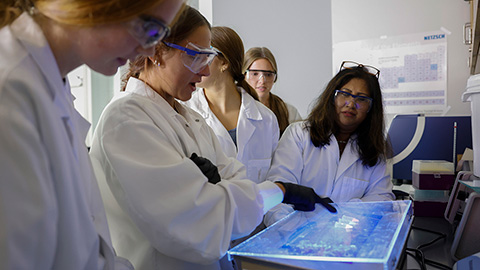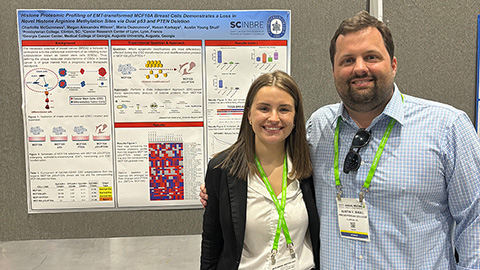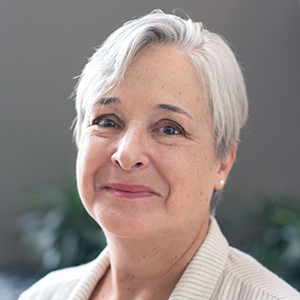Those who care and engage
In her essay about being named a fellow of the American Society for Biochemistry and Molecular Biology, Susanna Greer writes about her journey “from ‘ASBMB member’ to ‘ASBMB member who actually engages deeply with, and cares about, the ASBMB.’”
Greer’s is one of five essays by 2022 fellows in this issue illustrating many of the ways members can engage deeply with this society.
Both Paul Craig and Nathan Vanderford have served on the Education and Professional Development Committee. Craig has volunteered with the undergraduate poster competition and is a member of this magazine’s editorial advisory board. Vanderford has served twice on an annual meeting planning committee.
Alex Toker is editor-in-chief of the Journal of Biological Chemistry after spending years reviewing countless submissions as an editorial board member and associate editor.
Greer spent six years on the Science Outreach and Communication Committee and helped design the society’s The Art of Science Communication course.
Ralph Bradshaw, an ASBMB member since 1971, has served on numerous committees and as the society’s treasurer, was the first editor of the journal Molecular & Cellular Proteomics, and co-wrote the ASBMB history book published to mark the society’s centennial.
Also in the May issue of ASBMB Today: short profiles of the newest class of fellows. They’ve worked on public affairs, membership, diversity and more.
And if the masculine-sounding term “fellows” gives you pause, let me reassure you. According to something called the Online Entymology Dictionary, “fellow” is derived from an Old English word for “partner, one who shares with another,” an Old Norse word for money, and a Proto-Germanic root meaning “to lie down, lay.” Thus the etymological sense seems to be “one who puts down money with another in a joint venture.” This source assures us it is “not etymologically masculine.”
I really like that bit about a joint venture. It’s not just about hanging around together; it’s about engaging with others and moving together into the unknown.
That’s why it’s such an appropriate word for ASBMB fellows.
Enjoy reading ASBMB Today?
Become a member to receive the print edition four times a year and the digital edition monthly.
Learn moreGet the latest from ASBMB Today
Enter your email address, and we’ll send you a weekly email with recent articles, interviews and more.
Latest in Opinions
Opinions highlights or most popular articles

The tortoise wins: How slowing down saved my Ph.D.
Graduate student Amy Bounds reflects on how slowing down in the lab not only improved her relationship with work but also made her a more productive scientist.

How pediatric cataracts shaped my scientific journey
Undergraduate student Grace Jones shares how she transformed her childhood cataract diagnosis into a scientific purpose. She explores how biochemistry can bring a clearer vision to others, and how personal history can shape discovery.

Debugging my code and teaching with ChatGPT
AI tools like ChatGPT have changed the way an assistant professor teaches and does research. But, he asserts that real growth still comes from struggle, and educators must help students use AI wisely — as scaffolds, not shortcuts.

AI in the lab: The power of smarter questions
An assistant professor discusses AI's evolution from a buzzword to a trusted research partner. It helps streamline reviews, troubleshoot code, save time and spark ideas, but its success relies on combining AI with expertise and critical thinking.

How AlphaFold transformed my classroom into a research lab
A high school science teacher reflects on how AI-integrated technologies help her students ponder realistic research questions with hands-on learning.

Writing with AI turns chaos into clarity
Associate professor shares how generative AI, used as a creative whiteboard, helps scientists refine ideas, structure complexity and sharpen clarity — transforming the messy process of discovery into compelling science writing.

